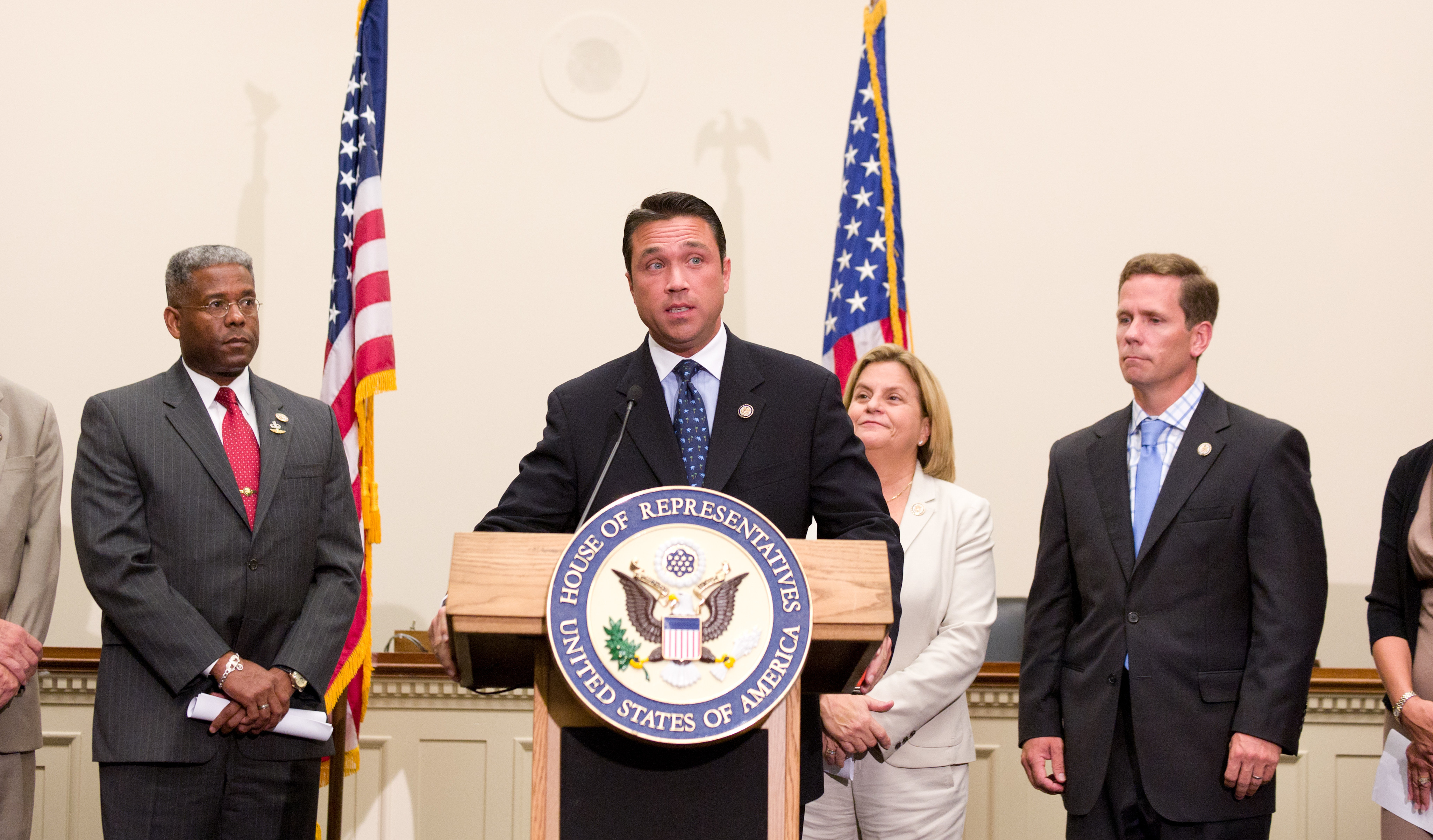The New York Times branded him the “main contender for New York’s most-embarrassing-candidate-of-the-year award,” and The Daily Show made him the butt of several jokes, yet Representative Michael Grimm of New York’s 11th district seems set to retain his seat in the House against Democratic challenger and former City Councilman Domenic Recchia. A Siena College poll shows Grimm to have a four percent lead, with 12 percent of voters stating they are undecided. Staten Island seldom generates positive press (think Jersey Shore and Freshkills Landfill), but this race has baffled national observers and locals alike.
The Republican congressman first made headlines in January 2014 after threatening New York 1 reporter Michael Scotto following the State of the Union address. Scotto had attempted to ask Grimm about an ongoing campaign finance investigation when Grimm said he would “break him in half, like a boy.” He reemerged in April 2014 when he was arrested and charged with a 20-count indictment on federal mail, wire and tax fraud connected to the Manhattan restaurant he once owned.
Yet despite these incidents, Grimm has held on to many of his supporters. He has insulated himself, largely with success, from criticism by citing his leadership during Hurricane Sandy and his efforts to freeze flood insurance rates, such as the Grimm-Waters Act, signed into law earlier this year. The act reduced federal flood insurance premiums for properties sold uninsured since July 2012 or that had a lapse in coverage. Grimm credits the new law for directing $28 million to Staten Island.
The 11th district is the most conservative district in New York City, consistently voting Republican in both presidential and mayoral elections. Staten Island, commonly referred to as the “Forgotten Borough,” is distinct from the rest of the city. It’s largely suburban and geographically separate, only accessible via ferry or bridges. And because Staten Island is smaller than the other four boroughs, it wields considerably less power in city matters. As a result, borough residents often feel left out or overlooked.
Staten Island’s last Democratic congressman was Michael E. McMahon, a one-term representative elected in 2008. Despite McMahon’s consistent alignment with his Staten Island constituents’ interests (most notably, he voted against the Affordable Care Act), Grimm ousted McMahon in 2010. In fact it might be Grimm’s seeming ability to fly in the face of political convention and etiquette—yelling at journalists and being investigated for fraud—that makes him popular in the forgotten borough.
Dr. Richard Flanagan, an associate professor of political science at CUNY College of Staten Island, said to The Wall Street Journal, “there is something of an anti-hero phenomenon taking place on Staten Island. The political culture is a bit anti-establishment and [Grimm’s] seen by some as combating the establishment. It works for him.”
Meanwhile, Recchia’s battle to win the seemingly “flippable” district has proved more difficult than expected. Although he has received endorsements from several unions and voter caucuses, such as the United Federation of Teachers and the Uniformed Fire Officers Association, he has not gained as much traction amongst Staten Island residents outside of his base. Recchia has also been largely criticized for living in Brooklyn; he represented parts of south Brooklyn that fall under the 11th district’s jurisdiction, billing him as an outsider to Staten Islanders.
Entertainer Barbara Streisand, singer Carole King, and former NBA Commissioner David Stern have all donated to Recchia’s campaign. The Democratic Congressional Campaign Committee has thrown its support behind Recchia as well, including airing several commercials highlighting Grimm’s indictment. While Recchia holds a lead in fundraising, raising $1.8 million versus Grimm’s $1.7 million, he has spent less, $540,850 compared to $933,308. But Recchia’s financial advantage and celebrity donor list has not translated into a tangible political advantage.
Grimm has benefited from Recchia’s less than stellar public performances. Recchia fumbled when answering questions from the press and during debates with Grimm. He later explained that he is “not a slick” public speaker and presented a cooler demeanor during a later, smaller event with Grimm. Still, his lack of specifics both when responding to Grimm’s inquiries – he failed to state the amount of Sandy funding the City Council approved for Staten Island during his tenure as financial committee chair – and when asked to offer specifics on legislation – such as the ACA – has made voters question his competence. Previous public appearances, including one with US Senator Chuck Schumer, have been described as “cringe worthy,” even to longtime Democrats. When asked about his foreign policy experience, Recchia touted his experience running an exchange program for Japanese students. In the face of his poor public performance, it is becoming increasingly obvious that Grimm’s indictment is not nearly enough to hand Recchia the race.
Questions of Grimm’s innocence remain, and if he wins his victory could be very short lived. If he is found guilty, he will have to leave office and a special election would have to take place in 2015. Yet despite this clear disadvantage, Recchia has still been unable to pull a decisive lead.
Speculation on special election candidates has already begun in the press and politicians have begun reacting accordingly. Democrat State Assemblyman Michael Cusick has already denied the possibility of participating. His Republican colleague in the State Senate, Andrew Lanza, also said “no” to a possible congressional run. The only politician who has openly entertained the prospect is Republican State Assemblywoman Nicole Malliotakis.
While many midterm elections are expected to be tossups, Staten Island’s race is a true wildcard. The poor quality of both candidates and Recchia’s inability to capitalize on his opponent’s checkered track record threatens to spell out a grim result, one that may informally extend the forgotten borough’s election season well into 2015.
